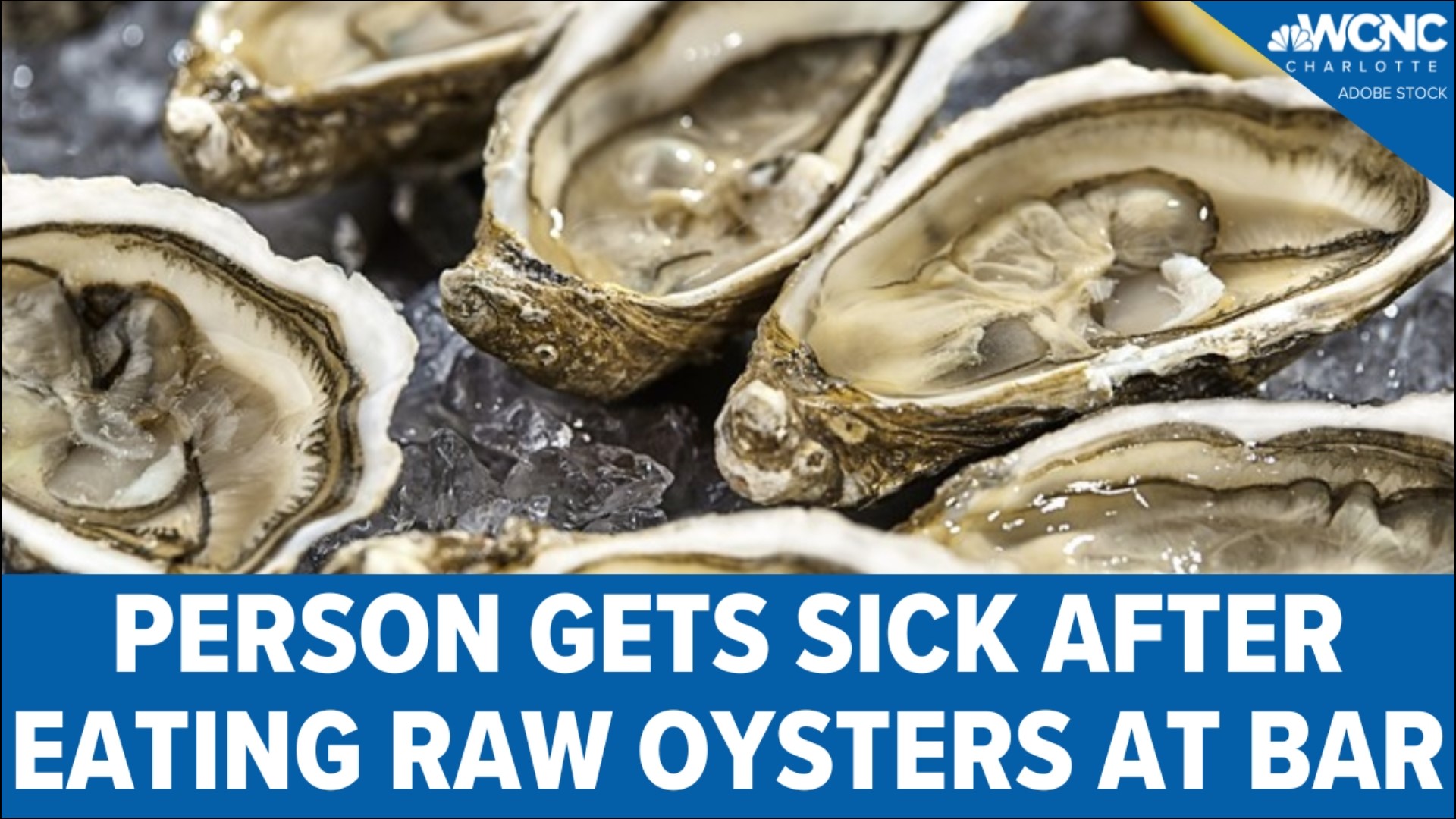CHARLOTTE, N.C. — Health officials in Mecklenburg County issued a warning about bacterial infections after a person got sick from eating raw oysters at a Charlotte bar.
According to Mecklenburg County Public Health, the person was diagnosed with vibriosis after likely eating oysters at Fairweather, a nonregulated bar. Nonregulated bars are establishments that have limited food menus and do not require inspections by the health department, officials said.
"If you are a customer, be proactive, look for the inspection certificate, or ask the staff," Dr. Raynard Washington, Mecklenburg County's health director, said. "The occurrence of a food-borne illness is rare, in large part due to the regulation of food establishments. But environmental health inspections do not have universal access and authority to every establishment that serves food."
Washington said a mistake in North Carolina law last year allowed some bars to operate legally while being exempt from health inspections, but there are proposed changes to state legislation to address this.
While still a suspected case, Fairweather owner Vincent Chirico said he believes the bacteria likely stems from the farm or purveyor where the oysters came from and not mishandling of food, adding they do everything they can to protect customers, including keeping oysters at an appropriate temperature.
He said they became a 'nonregulated bar' because they didn't initially serve food and the law allowed them to maintain that status even though they now sell oysters.
He added that they will stop getting oysters from that provider and welcome health inspectors to visit the business.
Vibriosis cases have been reported across the country this summer, with health experts blaming hot weather and rising sea temperatures. Vibrio bacteria are found naturally in the environment but thrive in warm conditions. People can get vibriosis by eating raw or undercooked shellfish, including oysters. Symptoms of vibriosis include diarrhea, abdominal cramps, nausea, vomiting, headache, fever and chills. Most people will recover in a few days, but people with weakened immune systems or liver disease are at an increased risk of serious illness or death.
Vibrio bacteria can also infect people through open cuts or scratches. The North Carolina Department of Health and Human Services warned people not to swim with open wounds after three people died from the bacteria. The bacteria are normally found in warm seawater or brackish water.
So far this summer, cases have been reported in Florida, Missouri, North Carolina and Washington. Since 2019, eight of the 47 reported cases in North Carolina have been deadly, NCDHHS reported.
Tips to lower your risk of exposure to vibrio bacteria:
- Don't swim with an open wound. This includes wading at the beach.
- Cover your wound with a waterproof bandage if it could come into contact with saltwater or brackish water.
- If you get cut while in the water, get out immediately and wash with soap and water.
- Wash wounds and cuts thoroughly with soap and water after contact with salt water, brackish water or raw seafood.
- Thoroughly cook all shellfish to an internal temperature of at least 145 degrees for 15 seconds.
WCNC Charlotte is committed to reporting on the issues facing the communities we serve. We tell the stories of people working to solve persistent social problems. We examine how problems can be solved or addressed to improve the quality of life and make a positive difference. WCNC Charlotte is seeking solutions for you. Send your tips or questions to newstips@wcnc.com.

